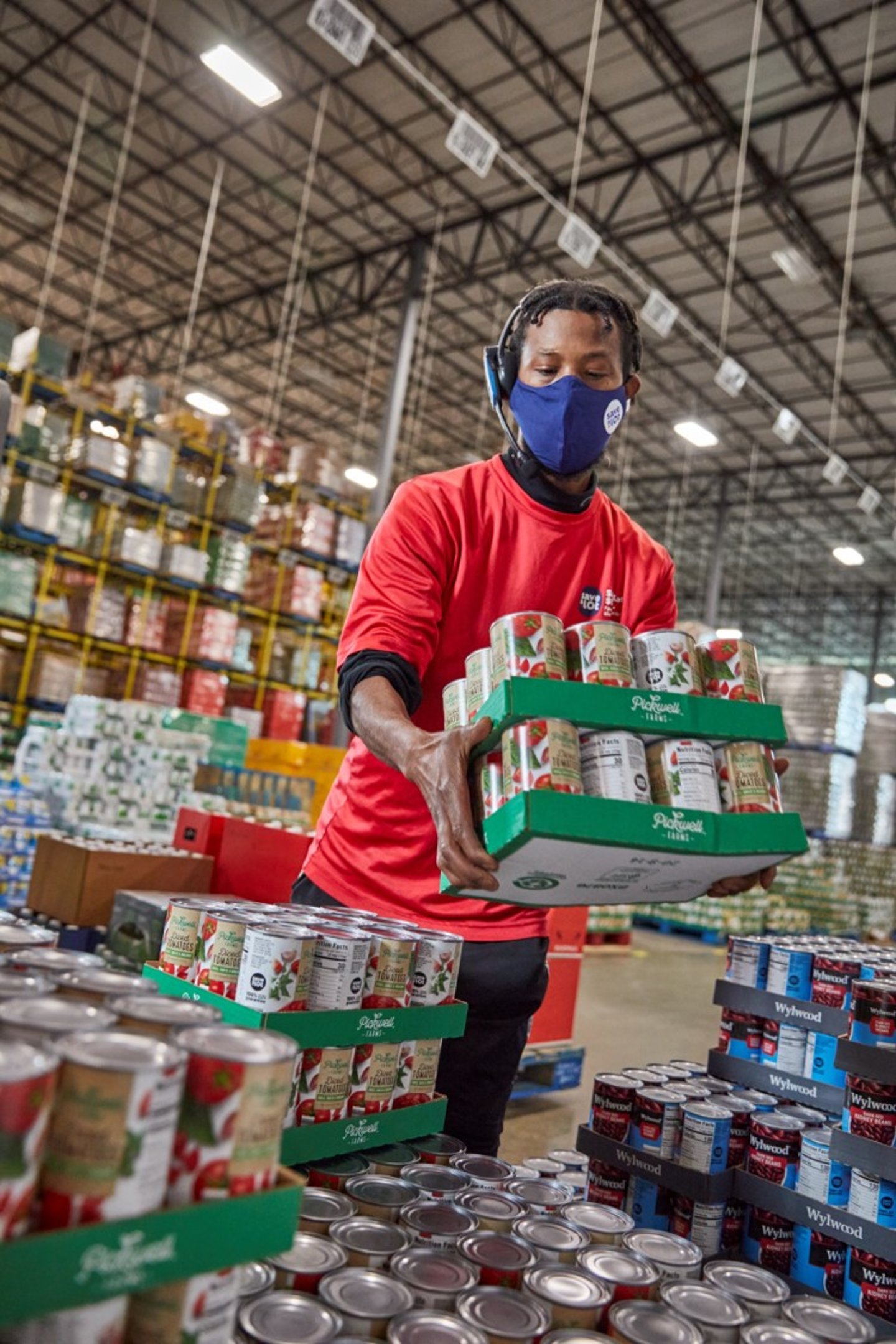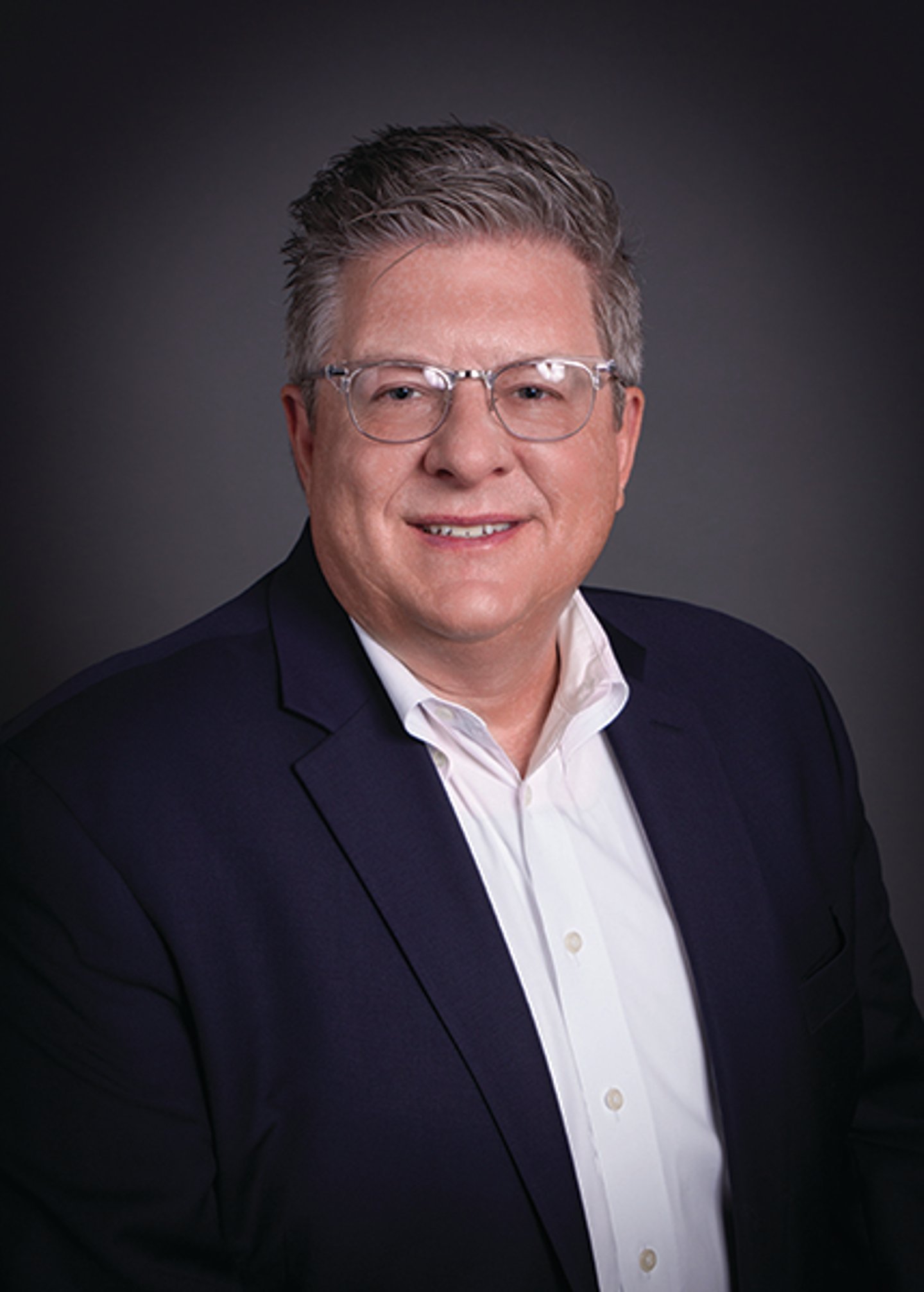Wholesalers and Independent Grocers: Trusted Allies
Wholesalers serving independent food retailers are part of a vibrant ecosystem whose recent activities attest to the overall robust health of the independent grocery industry. Guided by the National Grocers Association (NGA) — recently relocated to Washington, D.C., from Arlington, Va., for greater access to the nation’s power brokers — indies are armed with a bold new agenda that includes calling on Congress and federal regulators to launch investigations into what it views as the illegal and anticompetitive business practices of the nation’s largest food retailers, particularly when it comes to rural and urban consumers, producers and businesses.
“Economic discrimination hurts customers and communities — and it’s already illegal,” NGA noted in “Buyer Power and Economic Discrimination in the Grocery Aisle: Kitchen Table Issues for American Consumers,” a document released this past March. “The antitrust laws written to prevent this conduct can no longer be ignored and must be enforced to protect local stores, consumers’ choices, and Americans’ health.”
“It’s been a challenging time for the independent grocery sector, and that didn’t start with the pandemic,” points out Gus Lebiak, president of White Plains, N.Y.-based Krasdale Foods. “For years, independent grocers had to compete with large chains and mass retailers, but when COVID hit, we started having to compete just to get product into stores. Usually, when there is enough supply, you’re competing for things like labor and logistics, but with COVID, we had to fight just to get our hands on products. When you look at the situation, you need to ask, were vendors being fair, or were they playing favorites with the big chains and outlets?”
Other priorities for independents, unveiled at the dawn of the Biden era, include employee tax relief, liability protection, assistance with accepting Supplemental Nutrition Assistance Program (SNAP) benefits for online purchases, credit card fees and the minimum wage.
This framework for action has rolled out as the sector asserts its integral role in the U.S. economy, according to NGA’s most recent economic impact study, in a clear indication that indies will remain resourceful in their quest for ever-greater success.
For his part, David Smith, president and CEO of Kansas City, Kan.-based Associated Wholesale Grocers (AWG), marvels that despite such issues as significantly higher operating costs over the past 18 months and finding suitable staffers, “something I’ve always admired about the independent grocer is their ability to improvise, overcome obstacles and adjust on the fly. Since their employees, their livelihood, and their family depend on them to run a successful business, they always find a way. While they are great at many things, it’s this incredible drive that sets the drumbeat of their business, and it’s powered by remarkable persistence and resilience.”
Following are profiles of several wholesalers that are, in their various ways, helping independents to keep winning on challenging playing field viewed by some as uneven.
Associated Wholesale Grocers (AWG)
Headquarters: Kansas City, Kan.
Estimated Revenue: $10.6 Billion
President and CEO: David Smith
There are seven key initiatives that AWG has undertaken this year, which Smith describes as “the most transformational and exciting improvements in our company’s 95-year history”:
- An all-in-one distribution (AIO) hub in Hernando, Miss.: A fully automated facility that aims to significantly expand assortment offerings to all members’ stores while reducing operating costs and providing a company-wide supply chain buffer.
- Distribution network improvements: Multidivision investments to leverage technology and automation for efficiency, sustainability and operating cost reduction.
- A digital sales and fulfillment strategy, focused on reducing e-commerce cost to serve, improving customer experience, and connecting disparate e-commerce platforms for efficiency and effectiveness, along with the launch of single- and multi-member consortium-operated micro-fulfillment centers to support members’ growing needs.
- A best-in-class store brands program, building upon AWG’s comprehensive store-brand program with expansions in high-growth and -demand products in all departments while investing to become even more competitive on known value store- brand items, and initiating enterprise-wide distribution and marketing of store brands.
- Build and implement a technology platform to buy and perform as a $22B retailer to better aggregate AWG member stores into a cohesive retail group with scale and improved efficiencies, better tracking and managed promotional spending for retail competitiveness.
- Leadership development and succession readiness to build and develop a solid future leadership team with strengths in the areas of omnichannel digital integration of the entire store, technology use, fresh department expertise and local market individualization.
- Build and open AWG’s Upper Midwest division to serve member-retailers in the high-growth region encompassing North Dakota, South Dakota, Minnesota, Iowa, and Wisconsin, including new retail partner Coborn’s, based in St. Cloud, Minn.
As for coming innovations, Smith notes: “There are fascinating and promising technologies, especially in the distribution and logistics areas, that will allow us to serve stores better, faster and cheaper. Vetting and testing these technologies are a daily part of our lives today. To the extent that we have the capital to implement them, and there is an acceptable return for our members (at wholesale and at retail), we adopt them and will be doing so at an accelerated pace. Some will be implemented entirely in our new facilities, and some levels retrofitted to our existing operations.”
He adds: “There are equally, if not more compelling, innovations in the realm of merchant tools such as unique consumer marketing, highly refined location-specific assortment planning, and enhancing the omnichannel experience through a simplified technology interface with consumers and their store of choice. The prioritization of these innovations will be unique to each of our member retailers.”
As far as the wholesaler’s business is concerned, Smith notes that the company is actively pursuing what he calls “Convergence, or connecting AWG and all of our 3,100-plus stores for retail success. This will require us to find meaningful process commonality among the membership to become more efficient and effective, to connect substantive performance and buying activities to achieve scale, all while continually preserving and building upon unique and local offerings and characteristics.”
The three-year process kicked off this year, and, according to Smith: “We already see some big wins on the scoreboard, and we are just starting. Our board of directors and members are very excited about this transformational journey to connect our members for success.”
C&S Wholesale Grocers
Headquarters: Keene, N.H.
Estimated Revenue: $31.5 Billion
CEO: Bob Palmer
In a major move, C&S revealed last month that it was purchasing Sheboygan, Wis.-based Piggly Wiggly Midwest, which operates corporate stores and services independent franchisees under a chain-style program. As part of the acquisition, the wholesaler will operate 11 Piggly Wiggly Midwest corporate stores and service 14 Butera Market stores in the Chicagoland region, as well as 84 Wisconsin franchisees under the Piggly Wiggly banner. Under the deal, Piggly Wiggly’s current distribution centers and offices will continue to operate, and C&S will remain the primary supplier for Butera Market stores.
“With more than 102 years in the rapidly changing grocery industry, the foundation of C&S’ success has been our ability to adapt and innovate ahead of market trends to better serve our customers,” said C&S Executive Chairman Rick Cohen at the time that the acquisition was made public. “It’s this legacy that drives our unrelenting focus on innovative go-to-market strategies and customer service. We consistently review opportunities to grow and expand into new geographies, segments and services to ensure the company’s long-term success.”
In the area of operations, the company has upgraded to the next generation of RingCentral MVP, which includes RingCentral Video, to ensure seamless operations for its thousands of employees across nearly every state. RingCentral Video is a replacement for the earlier-generation RingCentral Meetings, a solution from Belmont, Calif.-based RingCentral Inc. enabling a fast, unified, open and trusted video meeting experience.
“RingCentral MVP seamlessly enabled C&S to continue our business operations throughout the pandemic,” noted VP of Infrastructure Philippe Bourdon in July. “Our employees were able to effectively communicate with each other and our customers to ensure that we helped feed our communities during this challenging time. We are very pleased with the RingCentral platform, especially with its ability to use any device, in any mode, from anywhere. Now with the MVP upgrade, which includes RingCentral Video, we’re able to give our employees a more integrated approach to team messaging, video meetings and cloud phone system experience in a single application.”
KeHE Distributors LLC
Headquarters: Naperville, Ill.
Estimated Revenue: $4.6 Billion
CEO: Brandon Barnholt
For KeHE, being able to showcase innovative products and insights by creating a strong item portfolio and providing fact-based solutions allows the company to help retailers win in the aisles. From a retailer support standpoint, the company has rolled out several key initiatives for independent retailers, tailored to the specific needs in their respective regions.
“In July, we launched the Independent Regional Sprints program, a four-week ordering event designed to bring the hottest products in each independent marketplace from five-10 brands through KeHE’s Digital Marketing Platform,” notes Director of Growth Solutions Westly Weaver, director of growth solutions. “Each of the featured brands will have educational videos and sell sheets to provide more insight about their products, alongside placement deals and continued promotional support. We also have a regionally focused program that supports both our natural and grocery independent customers called the Regional Spotlight program. This program is designed to provide deep discounts on the top-selling items in KeHE’s product portfolio. Both initiatives are exclusive for our independent retail partners and will help serve their unique customer needs.”
Weaver also points to an emerging-brands initiative, KeHE elevate. “Less than 200 suppliers are hand-selected by KeHE’s category management team, based on ingredients, innovation, salability, taste, purpose, and time in the market,” he explains. “This program not only helps emerging brands attempting to break through in the marketplace, but also brings innovation to our retail partners, most of which are looking to be first to market and stand out from their competition with new products.”
The reason for this focus on innovative products is to help indies stand apart from the crowd, according to Weaver. “Independent grocery continues to be a disrupter in the marketplace,” he observes. “With consistent growth since 2010, independents are looking to differentiate themselves with a broad range of product assortment while focusing on key trends that boost sales and in-store traction. Being able to take advantage of more natural and specialty products allows independent grocers to directly connect to the needs of their local communities and provide an experience that their customers are looking for.”
Meanwhile, the company is also busy streamlining its customers’ supply chain experience. “By predicting promotional lift using historical promotional sales and attributes, along with advanced statistical models such as artificial intelligence (AI) and machine learning (ML), distributors can forecast retail demand better and reduce out-of-stocks at the store level,” says Senior Director of Supply Chain Raj Govindarajan. “Building better capabilities to reserve and allocate inventory intelligently during manufacturing constraint situations is key for increasing customer service levels. That can be done by implementing features around order orchestration and order allocation through distributed order management.”
In fact, the four key breakthrough innovations Govindarajan sees on the horizon for wholesalers are assortment optimization, digital supply chain transformation, automation, and AI and ML.
Krasdale Foods Inc.
Headquarters: White Plains, N.Y.
Estimated Revenue: $1.6 Billion
President: Gus Lebiak
Krasdale collaborates with its independent retail partners to create unique grocery destinations.
“Two important strategies for independent grocers are stores that provide an experience and those that cater to the local market,” notes Lebiak. “We work with store owners to help them meet their goal — whether it’s helping them remodel to provide more of an in-store experience, or sourcing specific ethnic foods and other products that their customers request. If we can’t find a product ourselves, we always allow store owners to buy from outside suppliers, because we’re in a better position when stores can give their customers what they want.”
Asked what innovations he thinks will transform the industry, Lebiak replies: “Because of labor shortages and other related problems, many store owners are focused on reducing payroll. We’re seeing more of our inner-city stores putting in self-checkout lanes. Some stores are moving to pre-packaged meats. There is a general drive to be more efficient. Ultimately, I think we’ll work out the supply chain issues. What’s more of an unknown is what the world will look like economically post-COVID. Are people going to continue working remotely? That will obviously affect not just buying habits, but [also] the labor market and who is willing to work in industries where you can’t work from home.”
Still, he believes that “[t]here will always be a place for independents. If online becomes more prevalent, larger stores and chains will be unable to service their large footprints, and that will create an opportunity for independents.”
Save A Lot/Moran Foods
Headquarters: St. Louis
Estimated Revenue: $4.2 Billion
CEO: Kenneth McGrath* (Leaving to Become Deputy Chairman of Lidl International on Oct. 1)
Over the past year and a half, Moran Foods, parent company of Save A Lot, has focused on transitioning to a wholesale business model, relicensing all of its Save A Lot corporate stores — with the exception of 21 stores in its hometown of St. Louis — to local ownership.
“This transition has allowed us to focus on our core mission of providing our retail partners and their customers the high-quality, low-priced groceries they look for,” says McGrath, who in late July revealed that he would return to former employer Lidl in October as deputy chairman of Lidl International in Europe, with no successor named at press time. “We are confident we will complete this initiative by the end of the year.”
Within the Save A Lot platform, Moran is continuing to modernize, with plans to further accelerate its investment in its stores. The company has been working closely with its retail partners on a new store design, which, according to McGrath, “features a contemporary evolution of the brand inspired by both employee and customer feedback. We have always been committed to our local communities, providing value, quality products and neighborhood support, and our rebrand reflects that continued mission and commitment.”
Moran is also developing a line of private label offerings with the aim of helping the company expand its reach beyond the Save A Lot network. “There are hundreds of independent operators across the country who can benefit from a value-driven private label offering and the ability to leverage the buying power of a major retailer,” notes McGrath.
In the area of upcoming innovations, “We’ve seen a real acceleration of automation and digital integration into the supply chain across the industry in the last 12 to 18 months, and the pace of adoption is only increasing,” asserts McGrath. “One of our first priorities in our own technology journey has been to make upgrades within our 13 distribution centers, updating the facilities’ technology infrastructure and improving operational efficiencies. That includes the deployment of a new transportation management system to optimize trucking and fuel costs. We’re also working to roll out more robust automation that will reshape how we plan, buy and move inventory throughout our network. Our diverse network that includes both corporate and retail partner-owned locations requires a disciplined approach, remaining nimble enough to work with multiple stakeholders.”
As far as Moran’s chief executive is concerned, independents must stay nimble to survive.
“We live in an incredibly diverse age, where individual communities and neighborhoods have their own identities and cultures,” he observes, “and retailers must adapt to serve them.”
SpartanNash
Headquarters: Grand Rapids, Mich.
Estimated Revenue: $9.3 Billion
CEO: Tony Sarsam
In a bid to be an even better wholesale partner, SpartanNash is planning to launch a supply chain improvement initiative in its second quarter as the company continues to lap pandemic sales gains.
During a first-quarter earnings call this past June, Sarsam said that the initiative will focus on executing sustained improvements to supply chain operations across the company's network.
“We’re just on the brink of making some of those investments,” he noted. “They are primarily around process. There will be some investments in IT upgrades, but a lot of the emphasis is going to be on strengthening our process and the way we go about that work. It will cover transportation, it will cover the way we think about our network, it will cover the way we think about inventory, and we're creating a sales- and operations-planning process that’s strengthening the way we manage our warehouses overall, and thinking about how we make our warehouse labor more efficient and more effective in that space.”
According to Sarsam, effort will “be a multiyear endeavor, but it’s absolutely critical to what we do to have a strong business as being both efficient and effective in our overall supply chain.”
Additionally, SpartanNash has opened its inaugural micro-fulfillment center, in Caledonia, Mich., near the company's Grand Rapids headquarters. The 55,000-square-foot facility can store up to 16,000 products and will be used to fulfill orders for several of the retailer’s banners throughout west Michigan.
According to SpartanNash, the new micro-fulfillment center will be able to support more than 1,000 daily orders from the retailer’s Fast Lane online grocery shopping solution. Orders will be picked and packed at the center and delivered either to the shopper’s home or to a store for curbside pickup. As well as expediting orders for customers, the facility will free up space in stores, leading to greater all-around efficiencies.
UNFI
Headquarters: Providence, R.I.
Estimated Revenue: $6.7 Billion (Independent Sales Only)
Chairman and CEO: Steven Spinner* (Stepping Down July 31, 2021)
High on UNFI’s to-do list is a new growth strategy, revealed at the company’s virtual Investor Day event last June. The strategy, known as “Fuel the Future,” aims to increase market share through network optimization, stronger innovation and an enhanced customer experience.
“UNFI has built a tremendous customer base, we have amazing associates, and we’re truly excited by our Fuel the Future strategy, which will help guide the next chapter of our growth,” said Spinner at the event. “I’m proud of all the work and success we’ve had under our prior Build-out-the-Store strategy, which widely expanded our offerings and strengthened our core business. Our new plan builds off that work, elevating us to the next level and focusing our efforts on making our customers stronger, our supply chain better and our food solutions more inspired.”
Fuel the Future’s six pillars are:
- Fulfill Power in Scale: optimizing the distribution network, maximizing capacity and simplifying operations with higher levels of standardization, and making investments in technology.
- Unlock Customer Experience: expanding the company’s portfolio of brands, products and services while offering more tailored solutions to help customers grow.
- Taste the Future: investing in existing, high-margin growth platforms such as Brands+, as well as developing new sources of revenue that further complement the core wholesale business.
- UNFI Pride: focusing on people to deliver on the company’s core value of safety in the workplace, as well as enhancing the overall associate experience; embracing and growing diversity of background, thought and approach; and commitments toward climate change and food insecurity and injustice, among other priorities.
- Retail Optimization: advancing the retail business through greater investment in store upgrades, e-commerce and digital platforms, combined with new sites that will contribute to growth.
- Earn Results: driving sustainable growth and stakeholder value, with Fuel the Future helping deliver fiscal 2024 financial results that are expected to include sales of more than $30 billion; adjusted EBITDA of more than $900 million; and earnings per share (EPS) of more than $5.25.
On the succession front, last year Spinner revealed that he would step down on July 31, 2021. During the Investor Day this past June, Spinner noted that he was “extremely confident the next CEO will be fully aligned to UNFI’s culture,” and promised that the company would “have a successor named by late summer or early fall.” This would seem to indicate that Spinner’s eventual successor already works for the company and was heavily involved in development of the Fuel the Future strategy, with Chris Testa, currently president and CMO, a prime contender for the top spot.









